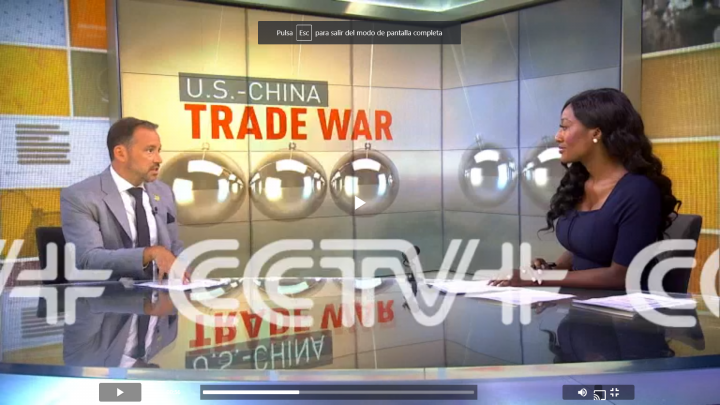“In the short run, I think we’re still waiting to find out where the pain is and where the pain isn’t. In recent polling, 17 percent of Americans say their financial situation is somehow been impacted by this in a bad way; six percent say it’s been good for them. In the long run we’ll see as some of the costs might get fed through the system when you get some dislocations. I could see this becoming more unpopular.”
Robert Moran, Partner, Brunswick Group.
Storyline
The U.S. tariff move is becoming more unpopular among its citizens and will not result in “winnable” results as it claimed, said Robert Moran, an insight-driven strategist and partner at the Brunswick Group, a leading corporate advisory firm.
Moran said history seemed to repeat itself while mentioning the McKinley Tariff, an act of the United States Congress framed by Representative William McKinley that became law on Oct. 1, 1890. The tariff raised the average duty on imports to almost 50 percent. Fiercely debated by politicians and condemned by Democrats, the McKinley Tariff was replaced with another act which promptly lowered tariff rates.
“Well, it’s interesting. This actually, something like this happened in 1890 fascinatingly enough. It was called the McKinley Tariff Act. It passed with a Republican Congress and a Republican president. It was so unpopular, led to their defeats in 1892. And by 1892, there was a Democratic Congress and a Democratic President Grover Cleveland, interesting enough. So they say that history may not repeat itself but it certainly rhymes,” he said.
Moran said the Trump administration’s tariff policy is becoming more and unpopular and dividing opinions from the public. He believes President Donald Trump is just using it as electoral politics to grasp votes for his midterm elections.
“In the short run, I think we’re still waiting to find out where the pain is and where the pain isn’t. In recent polling, 17 percent of Americans say their financial situation is somehow been impacted by this in a bad way; six percent say it’s been good for them. In the long run we’ll see as some of the costs might get fed through the system when you get some dislocations. I could see this becoming more unpopular,” he said.
Moran said he does not think trade wars are winnable as U.S. Secretary of Commerce Wilbur Ross claimed by saying that the United States could find other suppliers from its trading partners to offset a drop in Chinese imports.
“I heard secretary Ross talk about this at the Press Club several months ago and he went into a lot of detail about where these goods are coming from and the ability of all the different trading partners to find offsets for those goods. He seemed to have convinced himself that this was a winnable trade war. I don’t think trade wars are winnable. The question then becomes for example, in the U.S.-China trade war, Brazil becomes one of the most important sort of swing countries as a supplier. Does Brazil create enough agricultural products to then support the Chinese market and offset American producers? I think that’s very much an open question,” he said.
Trade friction between China and the U.S. has escalated after the U.S. announced on Aug. 1 to raise tariffs on 200 billion U.S. dollars worth of Chinese goods from 10 percent to 25 percent. In response, on Aug. 3, China decided to impose additional tariffs of four different rates on about 60 billion U.S. dollars worth of imports from the United States.
On March 22, the Trump administration announced that it would impose tariffs on Chinese products exported to the United States worth 50 billion U.S. dollars, of which tariffs on 34-billion-dollar products have been officially implemented since July 6.






